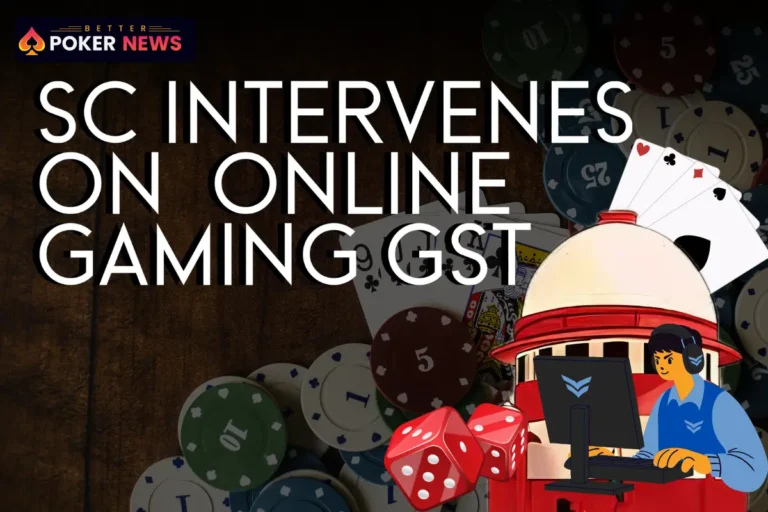The Supreme Court has stepped in to provide temporary respite to 49 online real-money gaming companies facing massive retrospective Goods and Services Tax (GST) demands. On Friday, a bench led by Justices JB Pardiwala and R Mahadevan stayed proceedings against these firms after the GST department sought intervention to safeguard Revenue interests.
What’s at Stake?
At the heart of the issue is the GST Council’s decision in October 2023 to impose a hefty 28% tax on the full face value of bets placed on online gaming platforms. The decision, which was to be reviewed after six months, triggered pushback from the gaming industry, which has consistently advocated for taxation based on gross gaming revenue (GGR).
Unlike face value, GGR represents the amount wagered minus winnings, offering a more balanced approach to taxation. Companies argue that taxing the full face value places an undue burden on users, making online gaming prohibitively expensive and threatening the sector’s viability.
Retrospective Tax Demands Add Fuel to the Fire
Compounding industry woes is the retrospective application of the 28% GST rate, covering bets placed from August 2017 to October 1, 2023. The fallout has been significant, with the GST department issuing 71 show-cause notices for alleged tax evasion totaling ₹1.12 lakh crore. If penalties and interest under Section 74 of the GST Act are included, liabilities could balloon to ₹2.3 lakh crore.
One of the most contentious cases involves Gameskraft Technology, which faced a ₹21,000 crore GST claim—India’s largest in indirect tax history. The Karnataka High Court invalidated this notice, ruling that Rummy, a key offering of Gameskraft, is a game of skill, not chance. This classification exempts it from certain actionable claims under GST laws.
A Crucial Stay
At Friday’s hearing, Additional Solicitor General N Venkataraman argued that allowing the notices to proceed without a stay could harm Revenue collection efforts, especially as some cases are set to conclude in February 2025. Agreeing with this view, the Supreme Court issued a stay and scheduled the matter for further hearing on March 18, 2025.
This stay is particularly significant as over 40 petitions challenging the GST Council’s retrospective demands remain pending before the Court. Petitioners include some of India’s biggest gaming companies, represented by Senior Advocates Harish Salve, Dr. AM Singhvi, and others.
Industry Under Pressure
The gaming industry is navigating one of its most challenging phases. Platforms are already grappling with absorbing GST costs to remain competitive, but experts warn this approach is unsustainable. Retrospective tax demands only add to the strain, with gaming companies fearing that user participation could decline due to increased costs.
The GST Council’s rationale for retrospective taxation is that bets placed during the specified period constitute gambling, regardless of whether they involve skill or chance. The industry, however, argues that such a classification oversimplifies the nuanced nature of online gaming.
What Lies Ahead?
The Supreme Court’s stay offers a temporary breather, but the March 2025 hearing will be critical in determining the future of GST regulation in the online gaming sector. The industry is hopeful for a resolution that aligns taxation policies with the unique dynamics of the gaming ecosystem.
The stakes are high—not just for the companies but also for the broader gaming community, which faces the possibility of fewer accessible platforms if the current taxation regime persists. The Supreme Court’s eventual decision could pave the way for clarity, equity, and sustainability in India’s booming online gaming industry.


1 Comment
Pingback: India’s Online Gaming Ban 2025: A23 Files First Major Legal Challenge